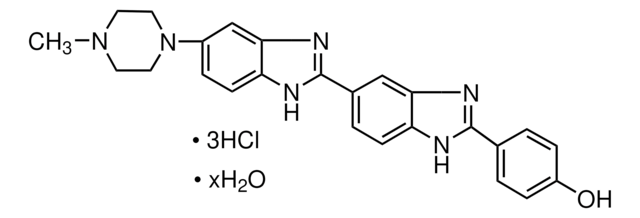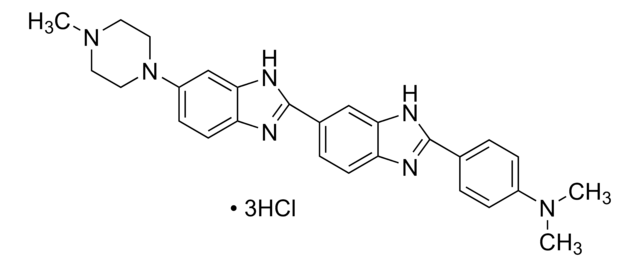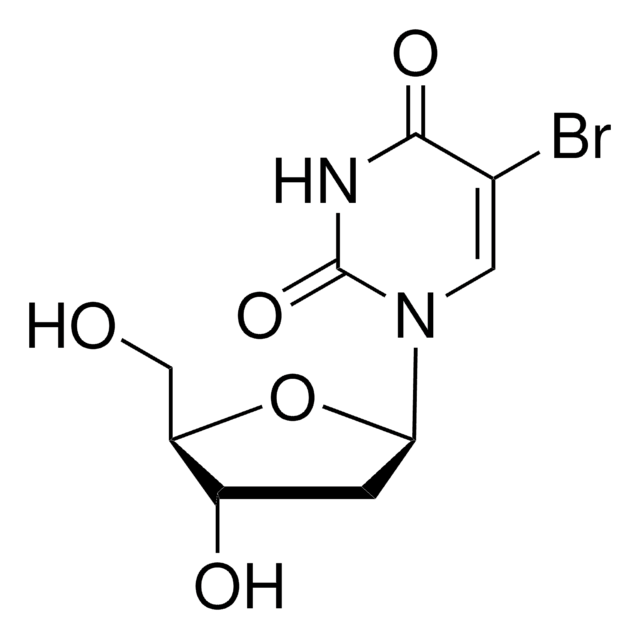94403
Hoechst 33258 solution
1 mg/mL in H2O, ≥98.0% (HPLC)
Sinónimos:
bisBenzimide H 33258 solution
About This Item
Productos recomendados
Quality Level
assay
≥98.0% (HPLC)
form
liquid
concentration
1 mg/mL in H2O
solubility
DMF: soluble
H2O: soluble
fluorescence
λex 355 nm; λem 465 nm in TE buffer; DNA
storage temp.
2-8°C
SMILES string
Cl.Cl.Cl.CN1CCN(CC1)c2ccc3[nH]c(nc3c2)-c4ccc5nc([nH]c5c4)-c6ccc(O)cc6
InChI
1S/C25H24N6O.3ClH/c1-30-10-12-31(13-11-30)18-5-9-21-23(15-18)29-25(27-21)17-4-8-20-22(14-17)28-24(26-20)16-2-6-19(32)7-3-16;;;/h2-9,14-15,32H,10-13H2,1H3,(H,26,28)(H,27,29);3*1H
InChI key
SMNPLAKEGAEPJD-UHFFFAOYSA-N
General description
Application
Storage Class
10 - Combustible liquids
flash_point_f
Not applicable
flash_point_c
Not applicable
Certificados de análisis (COA)
Busque Certificados de análisis (COA) introduciendo el número de lote del producto. Los números de lote se encuentran en la etiqueta del producto después de las palabras «Lot» o «Batch»
¿Ya tiene este producto?
Encuentre la documentación para los productos que ha comprado recientemente en la Biblioteca de documentos.
Los clientes también vieron
Nuestro equipo de científicos tiene experiencia en todas las áreas de investigación: Ciencias de la vida, Ciencia de los materiales, Síntesis química, Cromatografía, Analítica y muchas otras.
Póngase en contacto con el Servicio técnico





